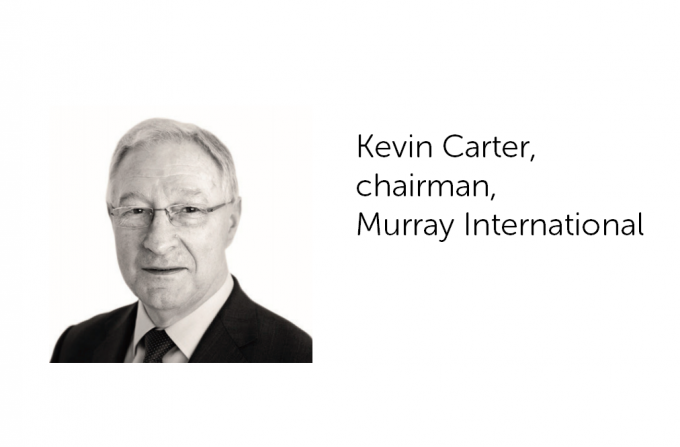Murray International (MYI) has announced its annual results for the year ended 31 December 2020, during which the overwhelming impact on its performance was the loss of 610 basis points due to stock selection, in what its chairman Kevin Carter (pictured), describes as an “an extraordinary chapter in the history of the world and financial markets”. To clarify, MYI’s provided an NAV total return of 0.9%. However, it says that its reference index (comprising 60% FTSE World ex UK Index/40% FTSE World UK Index up to April 2020 and 100% FTSE All World TR Index from May 2020) was 7.0%. The share price posted a total return of -5.3%, reflecting a move from trading at a premium to NAV of 5.9% at the start of the year to a discount of 0.7% at the year end. Income per share generated from the Company’s portfolio amounted to 46.6p for the year.
Progressive dividend policy is being maintained
MYI’s Board is recommending a final dividend of 18.5p per share (2019: 17.5p). If approved at the Annual General Meeting, the final dividend will be paid on 18 May 2021 to shareholders on 6 April 2021 and will bring the total dividend for the year to 54.5p (2019: 53.5p). This is an increase of 1.9% which is ahead of the 1.2% increase in the Retail Prices Index in 2020 and represents the 16th year of dividend increases for the Company (underling its position as an AIC ‘Next Generation Dividend Hero’).
The payment of the final dividend will use approximately £10.2 million from MYI’s accumulated revenue reserves, amounting to approximately 15% of these reserves. The board has said that it intends to maintain its progressive dividend policy, given MYI’s investment objective. It highlights that the policy means that, in some years, revenue will be added to reserves, while, in others, revenue may be taken from reserves to supplement earned revenue for that year. However, over time, MYI will aim to pay out what the underlying portfolio earns in sterling terms. The board is also maintaining its present policy of not hedging the sterling translation risk of revenue arising from non-UK assets.
Portfolio activity
MYI’s manager says that overall portfolio transaction activity was nearly twice the level of 2019 and that funds raised for new investment in equities came from a variety of sources. Close to 5% of net assets was raised from divesting Emerging Market Bonds, notably all Brazilian Sovereign and Corporates plus some Indonesian Sovereign bonds. The manager says that, having performed strongly on both an absolute and relative basis, the switch into equities offered compelling value at the time.
Over 3% of net assets was raised from ongoing reductions to Taiwan Semiconductor, one of MYI’s strongest performers during the year, and still the portfolio’s largest holding. Outright divestment of Bank Pekao in Poland and Public Bank in Malaysia centred on concerns over pandemic related damage to longer-term business objectives, whilst sales of smaller Brazilian equity holdings in Ultrapar and Wilson Sons provided capital for increased investment concentration into core Latin American holdings.
The large position in Unilever Indonesia was switched into the Unilever parent company for yield enhancement at what the manager considered to be an attractive relative valuation, whilst reductions to strongly performing shares of Swedish Industrials Epiroc and Atlas Copco plus Chilean lithium producer Socieda Quimica (Soquimich) was profit taking.
Performance attribution
MYI’s manager says that of the 580 basis points (before expenses) of performance below the Reference Index, asset allocation added 10 basis points and stock selection detracted 610 basis points. Structural effects, relating to the fixed income portfolio and gearing net of borrowing costs, added 50 basis points of relative performance.
[QD comment: In reality, these are not such a bad set of results. Murray International, with its income focus, was going to struggle in a year where an increasingly concentrated market (United States), sector (Technology) and stock (low-yielding) outperformance will have dominated the returns of its composite index.]
